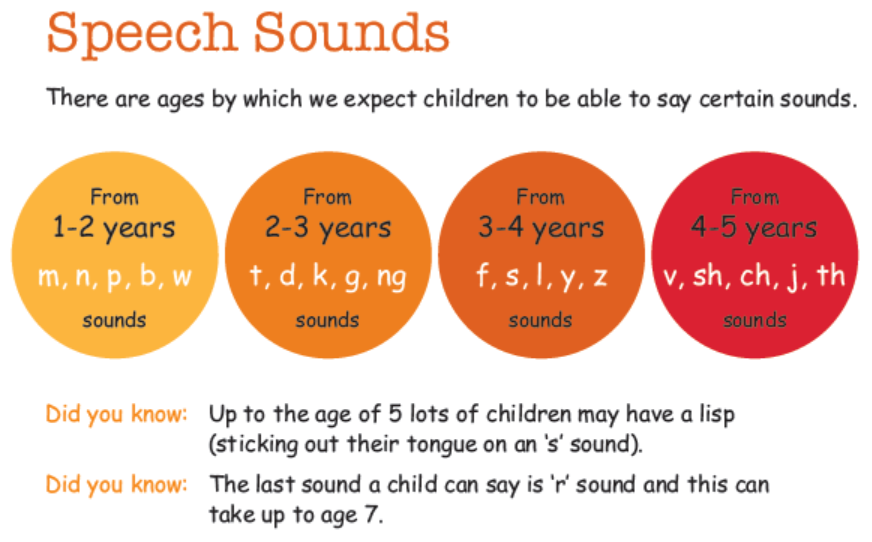If you want to know more about how your child’s speech should develop as they grow or if you have any questions about your child’s speech then this blog post may be for you.
What is speech?
Speech is how we say or pronounce sounds and words. Your child may be saying ‘tar’ instead of ‘car’ or ‘bish’ instead of ‘fish’. As children learn to speak, they learn how to pronounce sounds at different ages. These speech patterns can sometimes make it difficult to understand your child.

Do the words become more accurate over time?
The first time a toddler says ‘ma’ for mammy, you are delighted! Soon you would expect that word to change to ‘mama’ and then eventually ‘mammy’. As long as words are changing and becoming more accurate, that’s what’s important. They all start off a little jumbled.
A general rule for understanding children’s speech is

Is there anything that would make my child more at risk for a speech difficulty?
If you child’s speech is unclear and one or more of the following risk factors apply to your child it may be beneficial to seek an assessment by a Speech and Language Therapist.
- Have a family history of speech difficulties.
- Your child has a history of ear infections as a baby or a toddler.
- If your child had little babble as a baby. Babbling is the beginning of your child’s speech development and should start around 6 months.
- If your child does not have many sounds for their age.
- If your child is excessively drooling or has difficulties with chewing.
- If your child is trying to speak with a dummy in their mouth.
If you have concerns about your child’s speech contact your Primary Care Centre or local health centre for a referral to Speech and Language Therapy. Click the following link if you want more information on how to get in contact with a Speech and Language Therapist https://loveparenting.ie/how-do-i-get-in-contact-with-a-speech-and-language-therapist/
Created, Written and Contributed by Little Voices Team.



